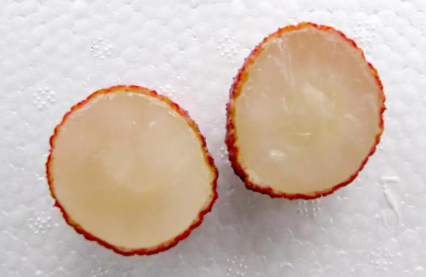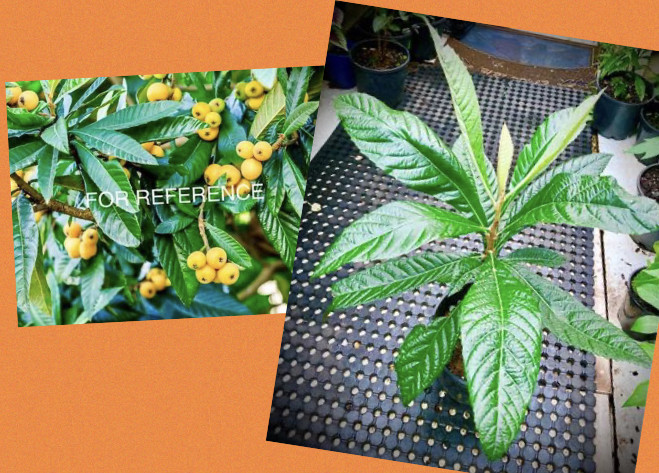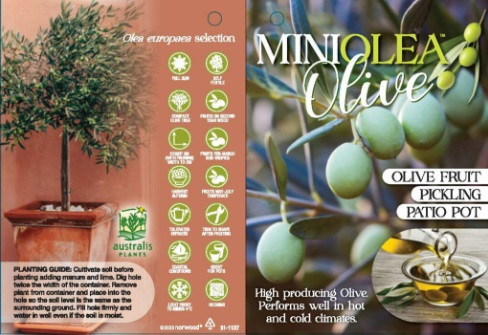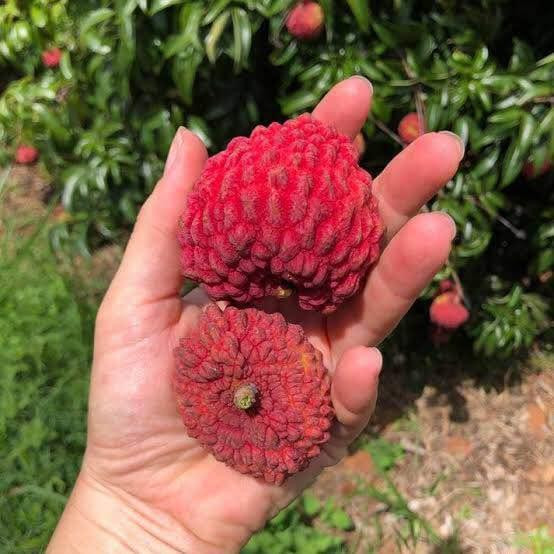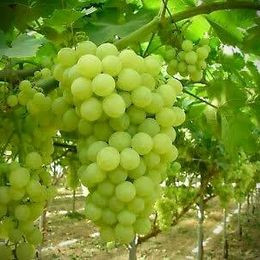
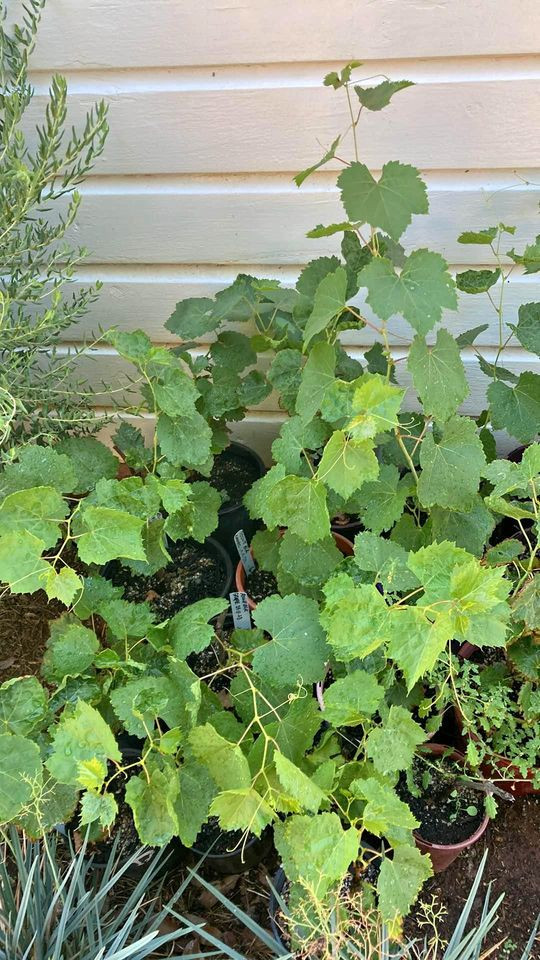
GRAPES
Category : Fantastic Fruiting Plants
Description
Grapes are small, sweet berries that grow in clusters on a deciduous woody vine. They are widely cultivated for their edible fruit, which can be eaten fresh or used to make wine, juice, jam, raisins, and other products. There are many varieties of grapes, including seedless types that are particularly popular for their convenience and sweetness.
Appearance
- Plant: Grapevines are woody, perennial climbers that can reach several meters in height. They have a climbing habit and use tendrils to attach themselves to supports.
- Leaves: The leaves are broad, lobed, and serrated, with a bright green color. They vary in size and shape depending on the variety.
- Flowers: The flowers are small, greenish, and borne in clusters called inflorescences. They are typically not very noticeable.
- Fruit: The grapes grow in clusters and can be green, red, purple, or black, depending on the variety. Seedless varieties are especially prized for their convenience and are often sweeter.
Habitat
Grapes thrive in temperate climates with warm summers and mild winters. They prefer well-drained, fertile soil and need ample sunlight to produce high-quality fruit. Grapevines are often grown on trellises or other support structures to maximize exposure to sunlight and airflow.
Uses
Culinary Uses:
- Fresh Fruit: Grapes are enjoyed fresh as a healthy snack and are a popular addition to fruit salads and desserts.
- Juice and Wine: Grapes are pressed to make grape juice and fermented to produce wine. Different grape varieties are used for different types of wine.
- Dried Fruit: Grapes can be dried to make raisins, which are used in baking and as a snack.
- Jams and Jellies: Grapes are used to make preserves, including grape jam and jelly.
Medicinal Uses:
- Antioxidants: Grapes, especially the skin and seeds, contain powerful antioxidants such as resveratrol and flavonoids, which help protect the body from oxidative stress and reduce the risk of chronic diseases.
- Heart Health: The polyphenols in grapes are known to support cardiovascular health by improving blood flow and reducing the risk of heart disease.
- Anti-inflammatory: Grapes have anti-inflammatory properties that can help reduce inflammation and improve overall health.
- Digestive Health: Grapes are a good source of dietary fiber, which supports healthy digestion.
Varieties
There are many varieties of grapes, including both seedless and seeded types. Some popular seedless varieties include:
- Thompson Seedless: A green seedless variety known for its sweet flavor and versatility.
- Crimson Seedless: A red seedless variety with a crisp texture and sweet taste.
- Flame Seedless: A red seedless variety with a juicy, sweet flavor.
Cultivation
Grapevines are typically propagated through cuttings or air layering to ensure the new plants retain the desirable characteristics of the parent plant. Seedless grape varieties are particularly popular for their ease of consumption and sweetness. Here are some key points for cultivating grapes:
- Planting: Grapevines should be planted in well-drained soil with plenty of sunlight. They are often grown on trellises or arbors to maximize sunlight exposure and support the climbing habit of the vines.
- Watering: Grapes need regular watering, especially during the growing season, but the soil should not be waterlogged.
- Pruning: Regular pruning is essential to maintain the shape of the vine, promote air circulation, and increase fruit production.
- Fertilizing: Grapevines benefit from balanced fertilization to support healthy growth and fruit production.
Pests and Diseases
Grapevines can be susceptible to various pests and diseases, including:
- Powdery Mildew: A fungal disease that affects the leaves and fruit, causing a white powdery coating.
- Downy Mildew: Another fungal disease that causes yellowing and browning of the leaves.
- Grape Phylloxera: A small insect that attacks the roots and leaves of grapevines.
- Birds and Insects: Birds, wasps, and other insects can damage the fruit.
Conclusion
Grapes (Vitis vinifera) are a versatile and delicious fruit that is enjoyed worldwide. Seedless, air-layered varieties are especially popular for their sweetness and convenience. Whether eaten fresh, dried, or used to make juice and wine, grapes offer numerous health benefits and are a delightful addition to any diet. With proper care and cultivation, grapevines can be a rewarding and fruitful addition to any garden or vineyard.
Price : $65
In Stock




